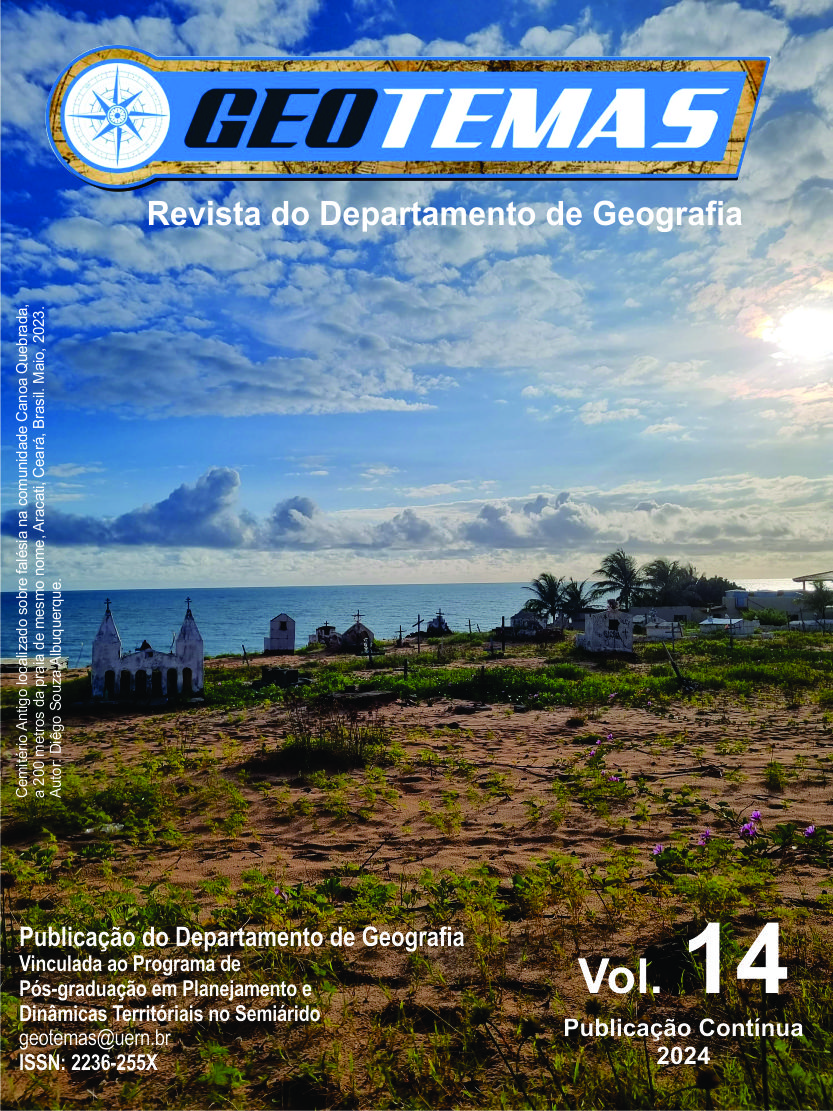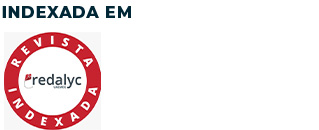What determines Rural Financial Illiteracy? An analysis of the relationship with socioeconomic and demographic factors
DOI:
https://doi.org/10.33237/2236-255X.2024.6098Keywords:
Financial Illiteracy, Rurality, Socioeconomic and demographic factorsAbstract
The recognition of financial literacy as a growing global policy priority highlights the urgency of addressing financial illiteracy, especially in rural areas of developing countries. This study focuses on the rural area of the Municipality of Capistrano-CE, notable for having one of the most significant rural populations in the Maciço de Baturité-CE region. The objective of this study is to examine the relationship between the level of financial literacy (behavior, attitude and knowledge) with socioeconomic and demographic variables from the perspective of rurality, in addition to encouraging similar research in other rural areas of Brazil. Authors such as Huston (2010); Remund (2010); Jobin and Losekann (2015); Potrich (2016); Pontara (2019) and OECD (2020) offer the theoretical-conceptual and empirical basis of this study. Data collection was carried out through direct field research, where 175 questionnaires were administered in the municipality under analysis. The results indicate that the population surveyed has a low level of financial literacy and is aged between 42 and 80 years, with the majority being female, corroborating the hypothesis that is constant internationally. The factors most closely related to financial illiteracy are: occupation, having dependents, own and parental education, and own and family income. Such results highlight the need for initiatives that economically empower rural communities and reduce vulnerability to financial manipulation and misinformation.
Downloads
References
AGARWALLA, S. Kumar et al. A survey of financial literacy among students, young employees and the retired in India. Retrieved February, v. 26, 2012.
ATKINSON, A.; MESSY, F. Measuring financial literacy: results of the OECD. International Network on Financial Education (INFE) pilot study, n. 15, 2012.
BUCHER-KOENEN, T.; LUSARDI, A.; ALESSIE, R.; VAN ROOIJ, M. How financially literate are women? an overview and new insights. NBER Working Paper, n. 20793, 2014.
CHEN, H.; VOLPE, R. P. An analysis of personal financial literacy among college students. Financial Services Review, v. 7, n. 2, p. 107-128, 1998.
CLARKE, M. D. et al. The acquisition of family financial roles and responsibilities. Family and Consumer Sciences Research Journal, v. 33, p. 321-340. 2005.
FÁVERO, L. P.; BELFIORE, P. Manual de análise de dados. Rio de Janeiro: Elsevier, 2017.
FLORIANO, M. D. P.; FLORES, S. A. M.; ZULIANI, A. L. B. Educação financeira ou alfabetização financeira: quais as diferenças e semelhanças? RECAT, Santa Catarina, v. 8, n. 1, p. 16-33, jan./ jun., 2020.
GIL, A. C. Como elaborar projetos de pesquisa. ed. 5. São Paulo: Atlas, 2010.
HUSTON, S. J. Measuring financial literacy. The journal of consumer affairs, [s. l.], v. 44, n. 2, p. 296-316. 2010.
INSTITUTO BRASILEIRO DE GEOGRAFIA E ESTATÍSTICA (IBGE). Censo Demográfico Brasileiro de 2010. Rio de Janeiro: IBGE, 2012.
INSTITUTO BRASILEIRO DE GEOGRAFIA E ESTATÍSTICA (IBGE). Censo Agropecuário 2017. Rio de Janeiro: IBGE. 2017.
IPECE. As regiões de planejamento do Estado do Ceará. Textos para discussão. nº 111. Fortaleza: IPECE, 2015.
JOBIM, S. S. A.; LOSEKANN, V. L. Alfabetização Financeira: mensuração do comportamento e conhecimento financeiros dos universitários da universidade da região da Campanha, Rio Grande do Sul. Sociais e Humanas, Santa Maria, v. 28, n. 2, p. 125-139, maio/ ago. 2015.
KIM, J.; GARMAN, E. T. Financial stress, pay satisfaction and workplace performance. Compensation Benefits Review, v. 36, n. 1, p. 69-76, 2004.
LUSARDI, A.; MITCHELL, O. S. Financial literacy around the world: an overview. PEF, v. 10, n. 4, p. 497-508, 2011.
MOTTOLA, Gary R. In our best interest: women, financial literacy, and credit card
behavior. Numeracy, v. 6, n. 2, p. 4, 2013.
NANZIRI, E. L.; LEIBBRANDT, M. Measuring and profiling financial literacy in South Africa. South African journal of economic and management Sciences, n. 21, v. 1, 2018.
OCDE. Recomendação do conselho sobre alfabetização financeira: instrumentos jurídicos da OCDE. OECD/LEGAL/046. 2020.
PONTARA, A. Educação financeira como proposta fundamental para a melhoria do desenvolvimento da agricultura familiar brasileira. In: SIMPÓSIO NACIONAL DE TECNOLOGIA EM AGRONEGÓCIO. v. 11, n. 1, Anais [...]. Ourinhos: FATEC, out. 2019. p. 189-197.
POTRICH, A. C. G. Alfabetização financeira: relações com fatores comportamentais e variáveis socioeconômicas e demográficas. Orientadora: Kelmara Mendes Vieira. 2016. Tese (Doutorado em administração) – Programa de Pós-Graduação em administração, da Universidade Federal de Santa Maria (UFSM), Santa Maria, 2016.
POTRICH, A. C. G.; VIEIRA, K. M. KIRCH, G. Você é alfabetizado financeiramente? Descubra no termômetro de alfabetização financeira. Revista de Administração e Contabilidade da Unisinos, Rio Grande do Sul, v. 13. n. 2, p. 153-170, abr./ jun., 2016.
REIS, M. V. S. Alfabetização financeira e ruralidade no município de Capistrano – Ceará. 2023.86 f. Dissertação (Mestrado em Economia Rural) - Centro de Ciências Agrárias, Universidade Federal do Ceará, Fortaleza, 2023.
REMUND, D. L. Financial literacy explicated: the case for a clearer definition in an increasingly complex economy. The Journal of Consumer Affairs, [s. l.], v. 44, n. 2, p. 276- 295. 2010.
ROBB, C. A.; BABIARZ, P.; WOODYARD, A. The demand for financial professionals’ advice: the role of financial knowledge, satisfaction, and confidence. Financial Services Review, v. 21, n. 4, p. 291-305, 2012.
SAVOIA, J. R. F.; SAITO, A. T.; SANTANA, F. A. Paradigmas da educação financeira no Brasil. Rio de Janeiro: RAP, nov./ dez., 2007.
SERASA. Mapa da inadimplência e renegociação de dívidas no Brasil//2023. 2021.
SHOCKEY, S. S. Low-wealth adults financial literacy: money management behavior and associates factors, including critical thinking. Tese (Doutorado em Filosofia) - University of Utah, United States, 2002.
SILVA, G. O. et al. Alfabetização financeira versus educação financeira: um estudo do comportamento de Variáveis Socioeconômicas e Demográficas. Revista de gestão, finanças e contabilidade, Rio de Janeiro, v. 7, n. 3, set./ dez., 2017.
Downloads
Published
How to Cite
Issue
Section
License
Copyright (c) 2024 Journal Geotemas

This work is licensed under a Creative Commons Attribution 4.0 International License.
Authors who submit their manuscripts to Geotemas declare that the work is an original article and has not been submitted for publication, in full or in part, in another national or international scientific journal or in another circulation vehicle. The authors also declare that they agree with the transfer of the copyright of the referred article to the magazine Geotemas (University of the State of Rio Grande do Norte), allowing for later publications, as long as the source of its publication is assured. Finally, they assume public responsibility for the article, being aware that any charges arising from a claim by third parties regarding the authorship of the work may apply to them.





















